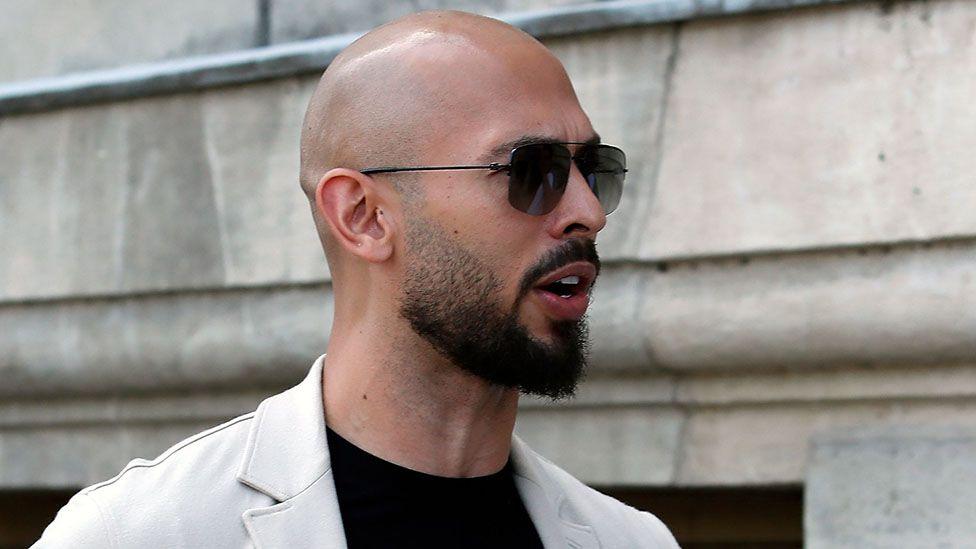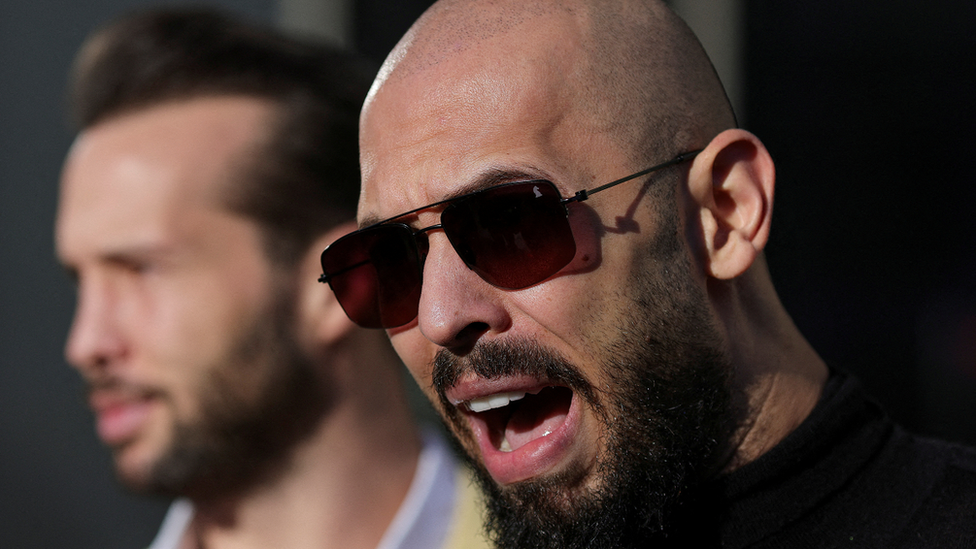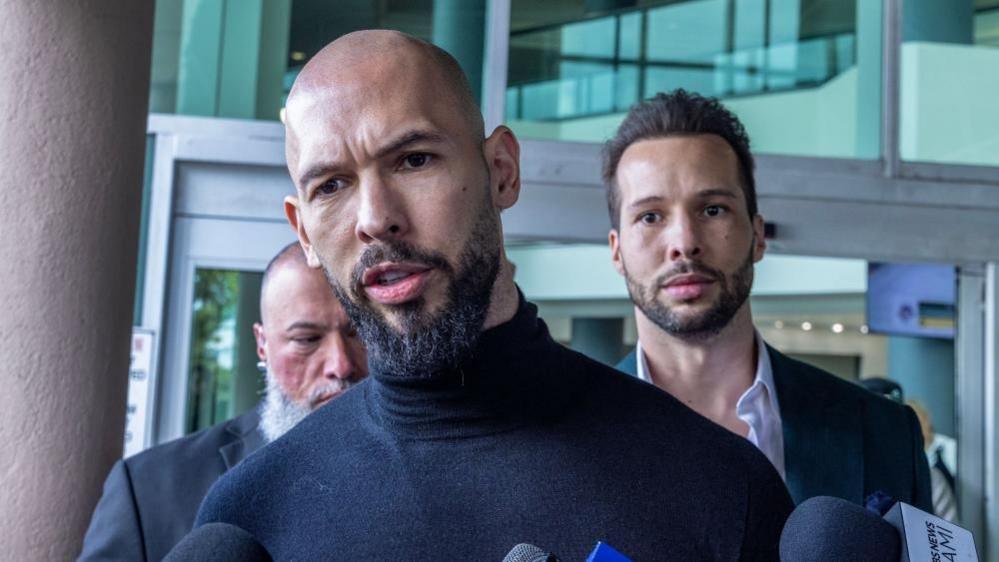School misogyny surge 'prompted by Andrew Tate'

Andrew Tate is facing criminal and civil legal proceedings in several countries
- Published
The influence of self-proclaimed misogynist Andrew Tate sparked "a surge" in similar attitudes in secondary schools in South Ribble and had to be tackled with targeted action, a report said.
Local councillors have been exploring the degree to which misogyny was a problem in the Lancashire district and what could be done about it.
South Ribble Borough Council's cabinet heard the "prevalence" of the highly controversial social media personality in recent years drove a spike in "misogyny-related" incidents in schools.
They were concentrated on a period three years ago and prompted the development by school leaders of a "zero tolerance" approach.
'Increasingly concerned'
The subject of misogyny was also covered in PSHE (personal, social, health and economic) lessons, the Local Democracy Reporting Service said.
According to the report – by South Ribble's misogyny working group – the strategies "had a positive effect", but the authors noted that "working with schools and young people will be vital to address [the issue] effectively" in the longer term.
South Ribble MP and former council leader Paul Foster, told the group during its evidence gathering that he had become aware that young girls were increasingly concerned about online misogynistic hate from young boys and men.
The report said that misogyny "often begins at an early age in digital spaces" and Foster said he would raise the issue with Education Secretary Bridget Phillipson.
He also suggested that there needed to be a "serious review of the curriculum".
'Toxic masculinity'
Andrew Tate is facing criminal and civil legal proceedings in several countries – including the UK – over alleged sexual and human trafficking offences, all of which he denied.
Among the 23 recommendations of the working group were proposals to better advise young women and girls – as well as young men and boys – how to report experiencing or witnessing misogyny.
It was also recommended that the borough's social prescribing team engaged boys and young men to address the issue of "toxic masculinity" in a "constructive way, ensuring that [they] feel supported rather than targeted".
Council leader Matthew Tomlinson said the group's work was "the start of a journey".
He added: "It's really important for us to make a mark and say this is important to us – and this is who we are."
Get in touch
Tell us which stories we should cover in Lancashire
Listen to the best of BBC Radio Lancashire on BBC Sounds and follow BBC Lancashire on Facebook, external, X, external and Instagram, external and watch BBC North West Tonight on BBC iPlayer. You can also send story ideas via Whatsapp to 0808 100 2230.
Related topics
- Published27 February

- Published19 April

